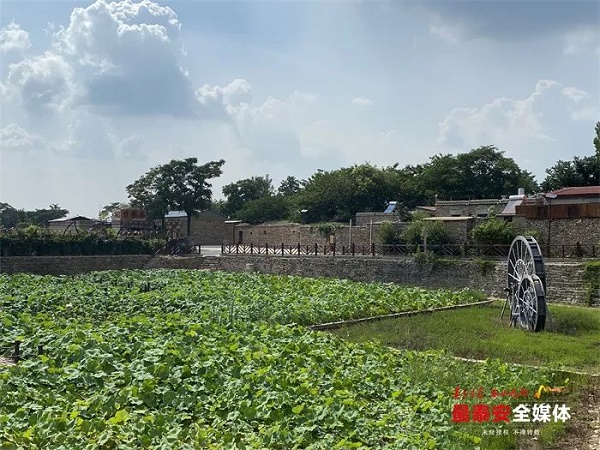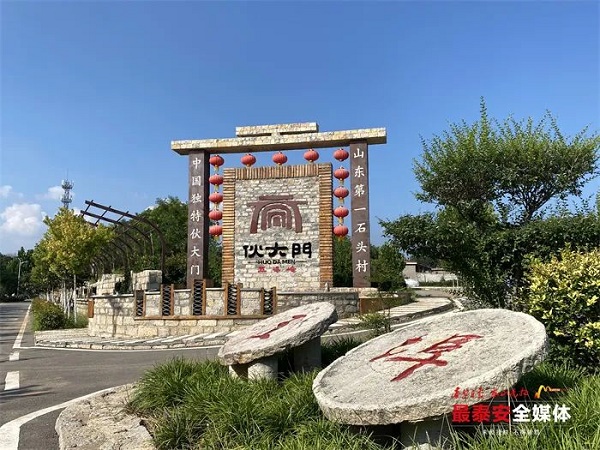Rural tourism lifts village out of poverty


The lotus pond in Tai'an's Wubu village, East China's Shandong province, is now a popular scenic spot. [Photo/Tai'an Daily]
Once a poverty-stricken place, Wubu village of Tai'an, East China's Shandong province, is now a bustling tourist spot that had generated a collective income of more than 700,000 yuan ($96,000) for three consecutive years.
According to Zhao Tongjun, Party secretary of Wubu village, this transformation was due to the variety of measures taken to improve the village environment. For example, the big pit where the village's waste was once dumped has been turned into a lotus pond. The main arteries of the village have also been paved with slabs to enhance the landscape.
Built over 600 years ago, Wubu village has more than 200 traditional houses from the Ming (1368-1644) and Qing (1616-1912) dynasties and the Republic of China (1912-49) period. It is also home to many revolutionary sites.
Wubu village has also collaborated with media companies to develop tourism resources and create the "Huodamen" scenic area, which features 37 themed homestays, over 20 farmhouse inns, and more than 60 distinctive rural farmhouses that attract an average of 500,000 visitors each year.
Promoting multiple industries is key to sustainable development, said Zhao. By constructing picking gardens and experiential gardens, the "Huodamen" scenic area incorporates agricultural garden culture, folk customs experiences, tourism products, catering, accommodation, and training services.
Twenty-two intangible heritage projects involving crafts like mahogany carving have also been introduced to the scenic area.
"We will next develop the film and television media industry, as well as support the construction of reception centers, film and television shooting bases, studio halls and other infrastructure to further improve the industrial layout of Wubu village," Zhao added.

The "Huodamen" scenic area in Tai'an's Wubu village, East China's Shandong province. [Photo/Tai'an Daily]







